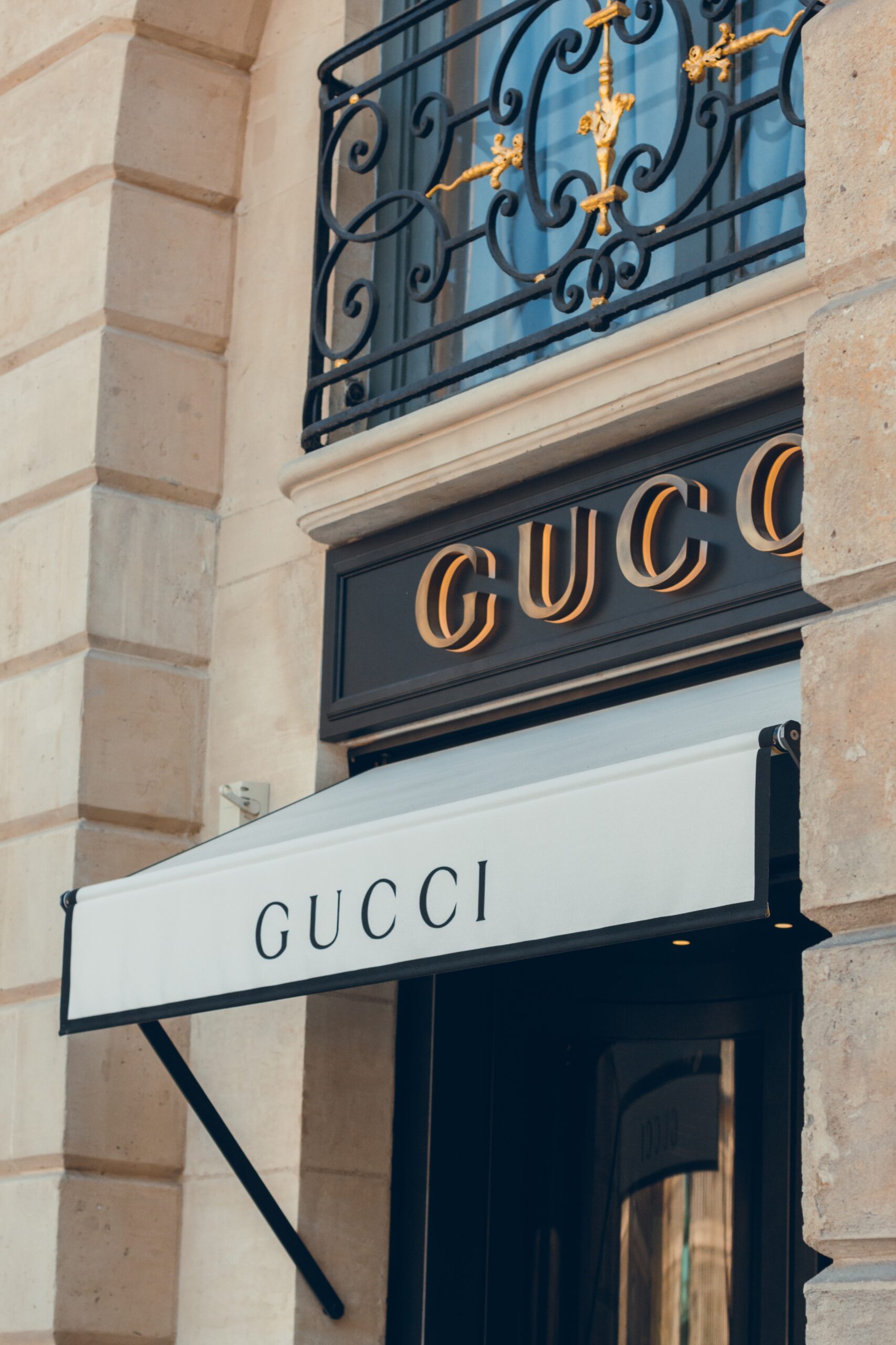Gucci is a brand synonymous with luxury, prestige, and high fashion. The iconic Italian label has been at the forefront of the fashion industry for nearly a century, and fashion enthusiasts and collectors worldwide covet its products. However, with luxury comes a high price point, and Gucci products are notoriously expensive. So, why exactly is Gucci so expensive? This blog post will explore factors contributing to Gucci’s high price point.
The Brand’s Prestige and Reputation
Gucci is a brand similar to luxury, prestige, and high fashion. The brand has developed a reputation as a high-end luxury brand over almost 100 years, and this reputation is a significant factor in the brand’s pricing strategy.
- The Brand’s Heritage
Gucci was launched in 1921 by Guccio Gucci in Florence, Italy. Gucci started as a small family-owned business, selling leather goods to local horse riders. However, over time, the brand expanded and gained popularity among the elite in Italy and beyond. Gucci quickly became known for its high-quality leather goods and timeless designs, and the brand’s heritage and legacy continue to be a driving force behind its pricing strategy today.
- Craftsmanship and Design
In addition to the brand’s prestige and reputation, the quality of materials and craftsmanship that go into Gucci’s products is another critical factor in the brand’s high price point. Gucci uses only the finest materials in its products, including high-grade leather, silk, and other luxury fabrics. The brand also employs skilled artisans and craftsmen to create its products, and their attention to detail and commitment to quality is evident in the finished product.
- Materials Used
Gucci sources only the highest-quality materials for its products, ensuring that each item is crafted with the finest materials available. For example, the brand’s leather goods are made from the highest-grade leather, carefully selected for its durability, texture, and overall quality. The brand’s fabrics, such as silk and cashmere, are also of the best quality, ensuring that each product is luxurious and long-lasting.
- Craftsmanship
The craftsmanship of Gucci’s products is another critical factor in the brand’s high price point. The brand employs skilled artisans and craftsmen who are experts in their fields, ensuring that each product is crafted with the utmost attention to detail and precision. These artisans and craftsmen are trained in traditional techniques and methods and use their expertise to create beautiful and functional products.
- Attention to Detail
Gucci products are known for their attention to detail, another hallmark of the brand’s commitment to quality. Every aspect of each product is carefully considered, from the stitching to the hardware to the overall design. The brand’s commitment to detail ensures that each product is beautiful and functional, with every detail serving a specific purpose.
- Value
Ultimately, the quality of materials and craftsmanship that go into Gucci’s products contribute to their overall value. High-quality matter, expert craftsmanship, and attention to detail ensure that each product is luxurious and long-lasting. This value is reflected in the brand’s high price point, as consumers are willing to pay a premium to own a product crafted with such care and precision.
The Brand’s Evolution
In addition to the brand’s prestige and reputation and the quality of materials and craftsmanship, the exclusivity and limited availability of Gucci’s products are also critical factors in the brand’s high price point. Gucci products are often seen as status symbols, and their exclusivity and limited availability only increase their perceived value.
- Limited Edition Collections
Gucci regularly releases limited edition collections that are only available for a short period. These collections are highly sought after by collectors and fashion enthusiasts alike, and the limited availability of these products only increases their value. These limited edition collections often feature unique designs and rare materials, making them highly desirable among consumers.
- Exclusive Collaborations
Gucci also collaborates with other high-end brands and designers on exclusive collections. These collaborations are highly anticipated by consumers and often sell out within hours of their release. The exclusivity of these collaborations only increases their perceived value, and consumers are willing to pay a premium for the opportunity to own a piece from these exclusive collections.
- Limited Production Runs
Gucci often produces its products in limited quantities, further increasing the exclusivity of its products. This narrow production approach ensures that each product is highly coveted, making it more difficult for consumers to obtain. The limited availability of these products only increases their perceived value and reinforces the idea that Gucci products are highly exclusive.
- Boutique Shopping Experience
Gucci also offers a highly exclusive shopping experience through its boutiques, which are designed to be luxurious and inviting. The brand’s boutiques often feature unique designs and limited edition collections only available in-store. This creates a highly exclusive shopping experience for consumers, reinforcing the idea that Gucci products are highly exclusive and desirable.
- Perceived Value
Ultimately, the brand’s prestige and reputation contribute to the perceived value of Gucci’s products. Customers are ready to pay a premium to own a piece of the brand’s history and legacy. This perceived value is a significant factor in the brand’s pricing strategy. The brand’s commitment to quality, exclusivity, and luxury all contribute to its perceived importance, and this, in turn, allows the brand to charge a premium price for its products.
The Quality of Materials and Craftsmanship
Another factor that contributes to Gucci’s high price point is the quality of materials and craftsmanship that go into its products. Gucci uses only the finest materials in its products, including high-grade leather, silk, and other luxury fabrics. The brand also employs skilled artisans and craftsmen to create its products, and their attention to detail and commitment to quality is evident in the finished product. These factors all contribute to the perceived value of Gucci’s products and justify the high price point.
Exclusivity and Limited Availability
Gucci also creates exclusivity around its products by limiting availability. The brand releases limited edition products available only for a short period, creating a sense of urgency among consumers who want to own a piece of the brand’s history. Gucci’s products are sold exclusively through its retail stores and select high-end retailers, enhancing its exclusivity and perceived value.
Marketing and Advertising Costs
Marketing and advertising costs also influence Gucci’s high price point. The brand spends significant money on advertising and marketing campaigns to promote its products and maintain its image. These costs are ultimately reflected in the price of the products, and consumers are willing to pay a premium for the opportunity to own a piece of the Gucci brand.
Supply and Demand
Finally, supply and demand also play a role in Gucci’s pricing strategy. The brand carefully controls the supply of its products, limiting availability and creating a sense of scarcity. This, in turn, drives up demand and allows the brand to charge higher prices for its products.
Conclusion
In conclusion, Gucci’s high price point is due to a combination of factors, including the brand’s prestige and reputation, the quality of materials and craftsmanship, exclusivity and limited availability, marketing and advertising costs, and supply and demand. While the high price point may be prohibitive for some consumers, it ultimately reflects the brand’s commitment to quality, exclusivity, and luxury.




